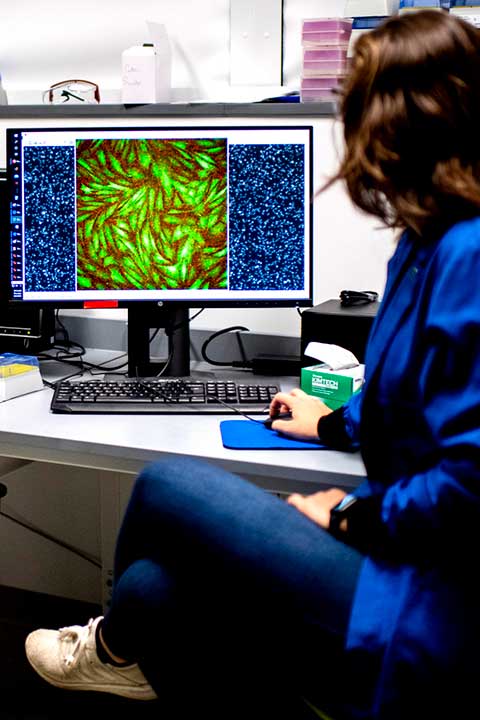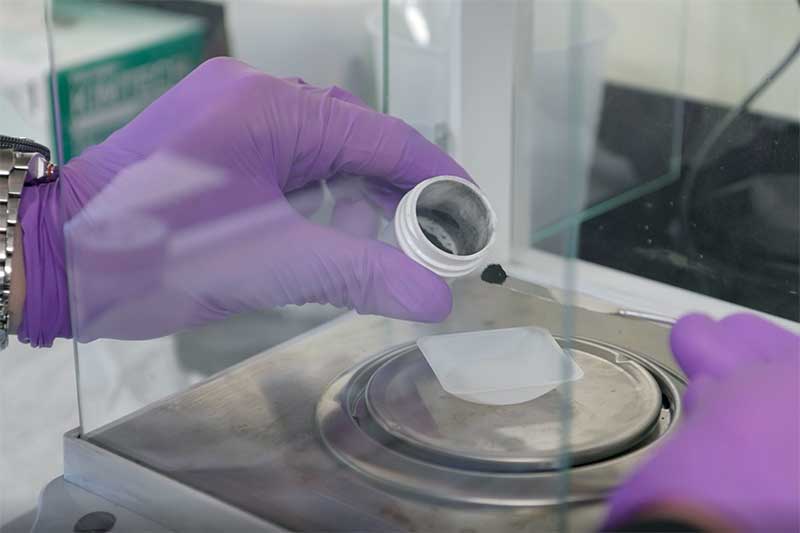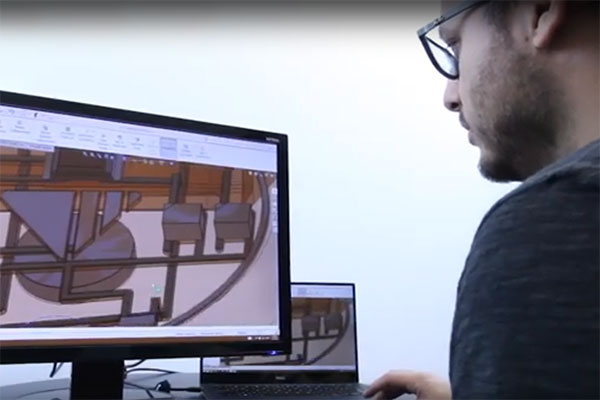
PhD in Bioengineering
PhD in Bioengineering
Overview
The interdisciplinary Bioengineering PhD (Doctor of Philosophy) program reflects departmental research strengths in multiple areas. Students accepted to the bioengineering program will undertake a rigorous core curriculum in basic bioengineering science, followed by a flexible selection of electives tailored to their dissertation research. There are four key areas of research strength in our department (see below).
The Bioengineering PhD program is designed to take advantage of Northeastern’s considerable strength in multiple areas of bioengineering. Located in the heart of Boston, directly adjacent to the world-renowned Longwood Medical Area, Northeastern provides an excellent opportunity for students to combine engineering, medicine and biology.
Innovative Curriculum
Biology can inspire engineering. Increasingly, discoveries in the life sciences reveal processes, complexity, and control without analogy in the world of traditional engineering. Current methods of producing nanoscale control over molecules cannot reproduce the organization found in even the simplest organisms. Energy capture, robust control, remediation, and self-assembly are all employed by biosystems with efficiency unparalleled by anything in today’s laboratories. At the same time, traditional engineering disciplines struggle to find new approaches to the complex challenges of 21st-century technology. The last 50 years of basic life science research have gradually revealed the layers of complexity intrinsic to biological processes, unmasking the fundamental underpinnings on which biological systems are constructed. Bioinspired engineering has the potential to transform the technological landscape of the 21st century. Astonishingly, it represents merely one of the myriad opportunities presented at the interface of biology and engineering.
The field of bioengineering is broad and includes all research at the interface of engineering and biology—this includes bioprocesses, environmental microbiology, biomaterials and tissue engineering, bioelectricity, biomechanics, biomedical and biological imaging, nanotechnology in medicine and the environment, and engineering design for human interfacing. At Northeastern, bioengineering PhD students have an opportunity to be trained to appreciate advances in bioengineering across a wide range of disciplines while they perform highly focused and cutting-edge bioengineering research with one of our faculty members.
- To develop and demonstrate rigorous knowledge in relevant areas of Bioengineering.
- To develop and demonstrate an ability to plan and perform creative and impactful Bioengineering research.
- To develop and demonstrate and ability to perform critical analysis of scientific journal articles.
- To develop and demonstrate effective written and oral communication skills
- To prepare students for careers in Bioengineering
In addition to Boston, the Bioengineering PhD program is offered at the Roux Institute at Northeastern in Portland, Maine.
Research Areas
The Biomedical Devices and Bioimaging research area reflects Northeastern University’s outstanding research profile in developing new technologies for visualizing biological processes and disease. Our department has active federally funded research spanning a broad spectrum of relevant areas in instrument design, contrast agent development, and advanced computational modeling and reconstruction methods. Example research centers include the Institute for the Chemical Imaging of Living Systems, the Translational Biophotonics Cluster, and the B-SPIRAL signal processing group.
Motion, deformation, and flow of biological systems in response to applied loads elicit biological responses at the molecular and cellular levels that support the physiological function of tissues and organs and drive their adaptation and remodeling. To study these complex interactions, principles of solid, fluid, and transport mechanics must be combined with measures of biological function. The Biomechanics and Mechanobiology track embraces this approach and leverages the strong expertise of Northeastern faculty attempting to tie applied loads to biological responses at multiple length and time scales.
Principles for engineering living cells and tissues are essential to address many of the most significant biomedical challenges facing our society today. These application areas include engineering biomaterials to coax and enable stem cells to form functional tissue or to heal damaged tissue; designing vehicles for delivering genes and therapeutics to reach specific target cells to treat a disease; and, uncovering therapeutic strategies to curb pathological cell behaviors and tissue phenotypes. At a more fundamental level, the field is at the nascent stages of understanding how cells make decisions in complex microenvironments and how cells interact with each other and their surrounding environment to organize into complex three-dimensional tissues. Advances will require a multiscale experimental, computational and theoretical approaches spanning molecular-cellular-tissue levels and integration of molecular and physical mechanisms, including the role of mechanical forces.
Research groups in systems, synthetic, and computational bioengineering apply engineering principles to model and understand complex biological systems, including differentiation and development, pathogenesis and cancer, and learning and behavior. This involves designing and implementing methods for procuring quantitative and sometimes very large data sets, as well as developing theoretical models and computational tools for interpreting these data. Deciphering the workings of a biological system allows us to identify potential biomarkers and drug targets, to develop protocols for personalized medicine, and more. In addition, we use the design principles of biological systems we discover to engineer and refine new synthetic biological systems for clinical, agricultural, environmental, and energy applications.
Experiential Learning
Northeastern combines rigorous academics with experiential learning and research to prepare students for real world engineering challenges. Co-op and internships are available. The Cooperative Education Program, also known as a “co-op,” is one of the largest and most innovative in the world, and Northeastern is one of only a few that offers a co-op program for graduate students. Through this program students gain industry experience in a wide variety of organizations, from large companies to entrepreneurial start-ups, while helping to finance their education. In addition to co-op, students can participate in the university’s Experiential PhD program. Northeastern is located in the nation’s biotech and academic hub and among the most renowned hospitals in the world.
Academic Advising
The Academic Advisors in the Graduate Student Services office can help answer many of your questions and assist with various concerns regarding your program and student record. Use the link below to also determine which questions can be answered by your Faculty Program Advisors and OGS Advisors.
Admissions & Aid
Ready to take the next step? Review degree requirements to see courses needed to complete this degree. Then, explore ways to fund your education. Finally, review admissions information to see our deadlines and gather the materials you need to Apply.





